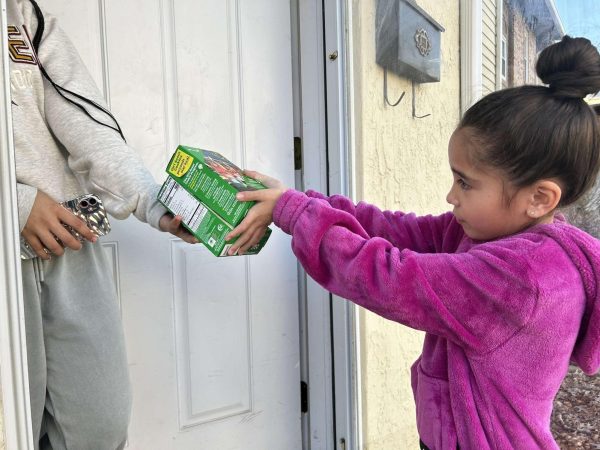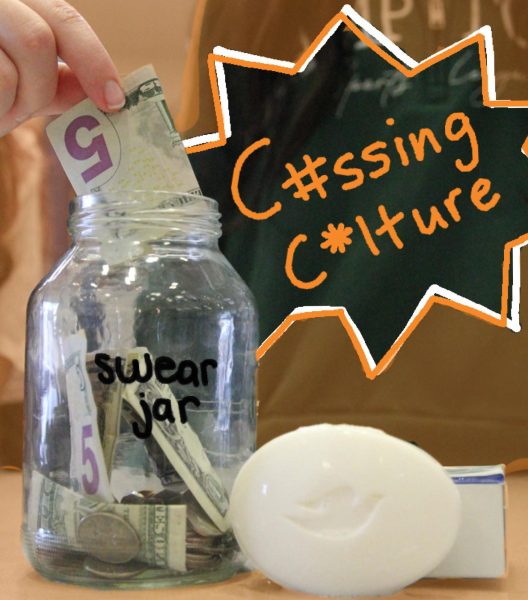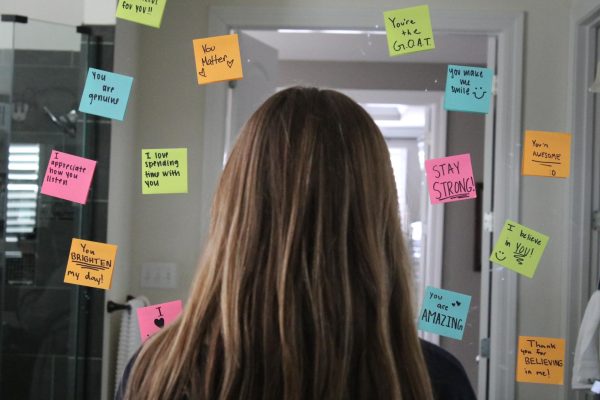How MHS Students Spend, Save, and Manage Their Money
Media by Jilian Bunderson
For months, Anne Getts, junior, saved up constantly, found new ways to have fun for free and avoided any extra spending so she could buy her very own car.
“I only spent about $20 in the course of March to late July,” Getts said.
Getts said the car – a 2005 convertible – was $2,400 because the top was shrunk and the window was taped on in the back. That’s why it was so cheap.
“I really wanted a car and my parents were unwilling to buy me one, so I had to save,” Getts said.
At first, not everyone understood that Getts herself saved up, planned and bought her very own car.
“When I first drove it to work, [my managers] were asking, ‘oh did your parents buy that for you’ or ‘when did your parents get you that’,” Getts said. “It feels very independent to say, ‘actually I got it myself’.”
Getts has some advice to others working to save up for something:
“Try to find a place to work that has as high of an hourly wage as possible. I got a job at Lion’s Choice, and I tried my best not to spend anything. And, once again, try very hard to only do activities outside of school that don’t cost money. And keep your options open because you’re not going to get your ‘dream car’ — you can’t expect it to be the nicest. Like it might be a little scratched up or weird looking, but you’ll love it anyway.”
Adam Starling, AP Econ teacher, agreed that learning how to be financially independent is a critical skill, and that it’s important to learn this skill as early as possible. For example, he said children should learn how to manage finances as soon as they are given an option to buy things.
Starling emphasizes that people should be rewarded for their own hard work, not given handouts by parents or others. Starling also shared that he’s teaching his 6-year-old daughter now about saving and earning money.
“She gets paid per chore she completes,” Starling said.“If she wants more money, she must complete more work. Hopefully this will instill a work ethic in her and teach her that she should not expect handouts from others. If you want something, you must work for it yourself.”
Andrew Ogden, junior, is also expected to earn and save for the things he wants.
“When I was 12, my parents stopped buying me things except for my birthday and other holidays. I have bought my own car, clothes, food, insurance, and most things,” Ogden said.
Ogden has also had to work smart about how he spends, saves and budgets his own money.
“I save about 70 percent of my earnings, then split that into long-term savings and monthly necessities. Then the other 30 percent goes to disposable money,” Ogden added.
While Ogden understands how independent he already is, he also understands there’s a downside to this independence and self-reliance.
“How my parents raised me has made me a harder worker than most people my age for what I have and has caused me to get a much better job then most of my peers,” Ogden said. “But on the contrary, I have a harder time letting go of my money and I have an emotional attachment to it. So it wasn’t exactly a good trade.”
Your donation will support the student journalists of Marquette High School. Your contribution will allow us to purchase equipment and cover our annual website hosting costs. You may become a PATRON by making a donation at one of these levels: White/$30, Green/$50, Blue/$100. Patron names will be published in the print newsmagazine, on the website and once per quarter on our social media accounts.

Jilian Bunderson, senior, is the Illustrator for the Messenger. She is also the co-president of Renaissance, a member of NHS, and has been involved in...







